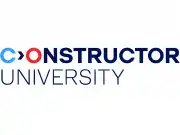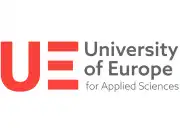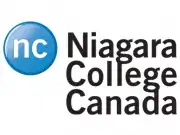Educational Programs in Health
- Advantages of Studying Health Programs
- Formats and Levels of Health Programs
- Top Universities in Health Programs
- Additional Recommended Institutions in Health Programs
- How to Apply for Health Programs
- Language of Instruction and Preparation for Health Programs
- Tuition Fee for Health Programs
- Scholarships and Grants for Health Programs
- Career Prospects after Studying Health Programs
- Is it Worth Studying Health Programs?
- Frequently Asked Questions

Bachelor of Science - Biochemistry and Cell Biology
Constructor University - Bremen, GermanyCell Biology is concerned with the structure and physiology of cells, their components, and interactions with the environment, whereas Biochemistry is concerned with molecules and chemical processes in living organisms. The two fields are combined in a single comprehensive degree program that will…

Bachelor of Science - Integrated Social and Cognitive Psychology
Constructor University - Bremen, GermanyThe Constructor BSc in Integrated Social and Cognitive Psychology is based on a multi-level approach to human behavior, which reflects the understanding that conduct is restricted and molded by elements ranging from biological and psychological characteristics to socio-cultural circumstances. In their…

Master of Science - Clinical Psychology with focus on Rehabilitation and Gerontopsychology
University of Europe for Applied Sciences - GermanyDo you want to study human behavior in grad school?
Combining a Bachelor's and Master's in psychology at UE gives students access to a broader professional field and more study options. UE's Clinical Psychology Master's degree focuses on rehabilitation, gerontological psychology, coaching,…

Master of Science - International Health Management
Berlin School of Business and InnovationDegree awarded by Università Telematica Internazionale UNINETTUNO, Italy.
The MSc in International Health Management is designed to educate health sector managers and leaders.
The curriculum focuses on worldwide and local health management and uses new knowledge and evidence…

Certificate - Community Pharmacy Assistant
Niagara College InternationalDo you have a strong attention to detail and a desire to provide excellent patient care and customer service?
You are an essential member of the healthcare team that provides community pharmaceutical services as a Community Pharmacy Assistant, working alongside a registered pharmacist and/or…

Certificate - Dental Assisting (Levels I and II)
Niagara College InternationalDo you have a knack for detail and a desire to be a part of an integrated healthcare team that provides oral care to people of all ages?
As a Dental Assistant, you play an important role in a dental practice and have the knowledge and practical skills to assist patients in achieving their…

Certificate - Dental Office Administration
Niagara College InternationalAre you a people person looking for a career that combines your business acumen with your interest in oral health care?
As a Dental Office Administrator, you are in charge of the day-to-day operations of a dental office, such as patient care records, health insurance company claims, and…

Certificate - Personal Support Worker
Niagara College InternationalAre you dedicated to improving the quality of life for others?
You are a skilled and compassionate healthcare provider who assists clients with physical and psychosocial challenges at all stages of life as a Personal Support Worker.
Highlights
- A…

Certificate - Pre-Health Sciences (Pathway to Certificates and Diplomas)
Niagara College InternationalDo you want to improve the lives of others while pursuing a rewarding career in the health sciences?
You have streamlined your interests and have the solid health sciences foundation required to pursue further postsecondary studies and achieve your dream as a Pre-Health Sciences-Pathway…

Certificate - Pre-Health Sciences (Pathway to Advanced Diplomas and Degrees)
Niagara College InternationalDo you want to start a career in nursing or another health science field but lack the scientific background? Are you a mature student seeking a career change?
You have the solid health sciences foundation required to pursue advanced postsecondary studies and achieve your career goal as a…
Advantages of Studying Health Programs
Educational programs in health cover a wide range of disciplines: medical sciences, public health, nursing, physiotherapy, biomedicine, population health, and medical engineering. Choosing this field opens up a number of advantages:
- Sustainable demand and global mobility. The need for qualified health professionals is high in all countries – from developed to developing. Graduates can easily find employment in medical institutions as well as in public health systems.
- Practice-oriented learning. Many programs include internships in clinics, participation in research projects, and field studies – allowing students to acquire skills that are in demand from day one of work.
- Interdisciplinarity. Health combines biology, chemistry, statistics, policy, ethics, and management – providing flexibility for specialization and career transformation.
- International validity of the degree. Studying abroad and obtaining a diploma from a recognized university significantly enhances competitiveness in the international job market.
- Research and scientific opportunities. Students can participate in large-scale projects, publish research, and intern at leading laboratories.
Thus, education in health sciences is not just an academic degree but a strategic investment in a professional future.
Formats and Levels of Health Programs
Health programs cover multiple levels and formats, allowing for a flexible learning path:
Levels
- Bachelor's (Undergraduate / BSc / BS / BHealth) – typically 3 to 5 years depending on the country and specialization; provides fundamental training.
- Master's (Master / MSc / MHealth / MPH / MPhil) – 1–2 years, focusing on research and in-depth specialization.
- Doctorate (PhD / DrPH) – research work, dissertation, 3–5 years.
- Residency / Clinical Training (specifically in medicine, dentistry, etc.) – several years after basic education.
- Short-term courses, summer schools, internships, certification programs – from a few weeks to several months.
Formats
- On-campus learning – traditional format with lectures, labs, and clinical practice.
- Hybrid / blended – part online, part on-campus (labs, practical sessions).
- Fully online programs – rarer in medicine, but common in public health, biomedical research, and health management.
- Field / internship formats – students participate in field projects, research, and practical work in healthcare institutions abroad.
Preparatory Programs
- Foundation / Pre-Health / Pre-Med – preparatory course for students without a strong background in biology, chemistry, or language. Usually lasts 6–12 months and prepares for admission.
- Intensive bridge programs – for students transferring from another field, providing a “bridge” to the main program.
- Summer / immersion programs in health – short-term courses offering an overview of the discipline and helping students make informed decisions.
Important: many modern programs combine early-stage learning with practical experience, which distinguishes them from purely theoretical programs.
Top Universities in Health Programs
| University | Program | Tuition Fee for International Students (per year) | Notes |
|---|---|---|---|
| University of Oxford (UK) | Biomedical Sciences / Public Health | ≈ 38,000 USD | One of the world leaders, strong research resources, integration with clinics. |
| Harvard University (USA) | Public Health (MPH), Health Sciences | From 52,000 USD | High ranking in all health disciplines, strong links with research institutes. |
| University of Melbourne (Australia) | Public Health, Biomedical Engineering | ≈ 33,000 USD | Comprehensive health programs, clinical practice opportunities. |
| Karolinska Institutet (Sweden) | Global Health, Biomedical Sciences | ≈ 28,000 USD | Leading European medical university, strong research reputation. |
| National University of Singapore (NUS) | Public Health, Health Sciences | ≈ 31,000 USD | High international ranking, modern laboratories, strong industry links. |
Note: University rankings are usually in the top 10–20 globally for medical and health sciences. Tuition fees are approximate and may vary depending on the course (medicine is more expensive), faculty, and additional fees.
Additionally Recommended Institutions in Health Programs
| University | Program | Tuition Fee for International Students | Notes |
|---|---|---|---|
| University of Europe for Applied Sciences (UE), Germany | Bachelor of Science – Health Management | 12,700 EUR/year | 3-year program focused on management skills and health system knowledge. International student-oriented, includes internships and study abroad semesters. |
| Berlin School of Business and Innovation (BSBI), Germany / Hybrid | Master of Science – International Health Management | 13,920 EUR for 1.5 years | Program focused on international health management. Suitable for students planning careers in healthcare management and international medical organizations. |
| London South Bank University, UK | Bachelor of Science (Hons) – Physiotherapy / Occupational Therapy / Sport & Exercise Science / Adult Nursing and others | 17,600 GBP/year | Strong applied health programs with clinical practice, international accreditation, and practical focus. |
| Wittenborg University of Applied Sciences, Netherlands | MBA – Health and Social Care | 23,300 EUR for the program (1.5 years) | Management program in healthcare and social support. Emphasizes leadership, practical skills, and theory-case integration. Attracts international students. |
| Niagara College International, Canada | Diploma – Fitness and Health Promotion | 36,659 CAD for 2 years | Practice-oriented program in fitness and health. Strong emphasis on applied skills for wellness and public health industries. |
These universities can be a good alternative to top-ranked institutions, combining reasonable tuition, quality education, and international accreditation.
How to Apply for Health Programs
The application process for international health programs requires attention to detail and early preparation. Key steps and requirements include:
Application Steps and Requirements
- Choosing a university and program.
Research the specific requirements of each university in advance: subject prerequisites (biology, chemistry, physics), minimum scores, and assessment format. - Checking deadlines.
Many universities accept applications 8–12 months before the start of the academic year. Plan time for exams and document preparation accordingly. - Documents
- Passport valid for the entire period of study plus six months.
- School diploma / transcript with grades.
- Language test certificates (IELTS, TOEFL, or Duolingo).
- If required – subject-specific exam results (SAT, ACT, or country-specific exams).
- Motivation essay / personal statement.
- Recommendation letters (from teachers or employers).
- Certificates of completed courses (if any).
- Medical certificates, vaccinations, proof of good health (especially for medical/dental programs).
- Language tests and scores
- IELTS: usually minimum 6.0–7.0 (higher for medical programs).
- TOEFL: 80–100+ iBT.
- Duolingo: equivalent level (~110–125).
Some universities may require additional biology, chemistry, or math tests.
- Preparation for interviews / portfolio (if required).
Some health programs (e.g., dentistry, physiotherapy) may require a personal interview, motivation test, or research portfolio. - Registration and online application submission.
Many universities use centralized platforms (UCAS, Common App, local systems). Submit all documents and pay application fees. - Document review and testing stages.
Universities review documents and may require additional tests, essays, or interviews.
Upon acceptance – receive an offer letter and prepare for the visa process. - Student visa application.
Required: proof of enrollment, proof of financial ability, health insurance, and accommodation confirmation.
Important: medical and related programs are highly competitive and often require many prerequisites. It is advisable to apply to multiple programs and prepare in advance.
Language of Instruction and Preparation for Health Programs
Language of Instruction in Different Countries
In many countries, health programs – including medicine, nursing, public health, biomedicine, physiotherapy, sports medicine, and rehabilitation – are available in English, especially for international students. Key regions include:
- UK, Ireland, Australia, New Zealand – most health programs are in English, including medical and paramedical fields.
- USA, Canada – wide selection of university and college programs, often including clinical practice in English.
- Singapore, Hong Kong – universities target international students, English is the main academic language.
- Hungary, Czech Republic, Latvia – English-language medicine and public health programs are actively developed for international students.
- Netherlands, Sweden, Denmark – many public health, healthcare management, and health programs fully or partially in English.
In countries where the national language is not English, bilingual programs are often offered. This includes basic academic courses in English, clinical/practical training partly in the local language, especially for patient-facing programs (nursing, medicine, physiotherapy).
Do You Need the Local Language?
Although programs are usually in English, local language proficiency becomes mandatory for clinical practice, especially in public or university clinics.
- Germany, Austria, Switzerland, France – B2 level or higher required for clinical practice.
- Scandinavia (Denmark, Sweden, Norway) – theory courses may be in English, but clinical practice requires the local language.
- Hungary, Czech Republic – separate local language courses included in the curriculum.
- UK, USA, Canada, Australia – additional language not required; English suffices for clinical practice.
Many universities include local language courses in the curriculum, especially for medicine and nursing. Language training usually starts in the first semester to ensure students can communicate with patients and staff during practical training.
Competition and Selection in Medical Programs
Admission to medical and health programs is usually more competitive than for humanities or business. Selection involves several stages:
- Academic selection – grades in key subjects (biology, chemistry, mathematics).
- Test results – language exams (IELTS/TOEFL), sometimes additional subject tests.
- Motivation and personal statement – critical for medical faculties.
- Interviews / entrance exams – often used for final selection.
Competition varies by country:
- Highest competition – UK, Netherlands, Germany, Austria, Scandinavia. Applications often exceed available spots by 5–10 times.
- Moderate competition – Hungary, Czech Republic, Latvia. Popular for international students but more lenient for well-prepared applicants.
- Lower competition – some Canadian colleges and Eastern European universities, especially in public health or nursing.
Numerus Fixus – Limited Admission
In some countries (notably Netherlands and Germany), medical programs operate under numerus fixus – strict limits on student intake.
- Admission based on ranking: grades, test results, motivation, sometimes interview.
- If applicants exceed spots, only top-ranking candidates are admitted.
- Common in medicine, dentistry, physiotherapy, less in public health.
- Example: hundreds of applications for a few dozen medical spots in the Netherlands.
Admission Strategy
Due to high competition, apply to multiple universities and programs rather than limiting yourself to one.
- More options increase the chance of success.
- Include both highly competitive and less competitive programs (public health, nursing).
- Start preparation at least 1–1.5 years in advance, especially if additional tests are required.
Preparatory / Pre-Admission Steps
Recommended preparatory programs:
- Foundation / Pre-Health / Pre-Med – for applicants without prior science background; includes biology, chemistry, math, anatomy, academic writing, and English.
- Bridge / adaptation courses – fill gaps for students from other fields.
- Summer and intensive courses – introduce program structure, terminology, and university requirements.
- Language courses and IELTS/TOEFL training – raise English proficiency to required levels (typically IELTS 6.0+).
Some universities allow direct admission to Bachelor's programs if the student has strong school subjects and a valid language certificate. Otherwise, preparatory programs significantly improve admission chances.
Tuition Fee for Health Programs
Tuition depends on country, program level, and specialization. Approximate ranges:
Tuition Fee
- USA / UK / Canada / Australia: 35,000–55,000 USD/year (medical programs may be higher).
- Europe (Central & Eastern): 10,000–30,000 USD/year (health sciences, biomedicine, public health).
- Asia / Southeast Asia: 15,000–35,000 USD/year depending on university.
Additional Expenses
- Accommodation: 6,000–15,000 USD/year.
- Food: 2,500–6,000 USD/year.
- Study materials, equipment, labs: 500–2,000 USD/year.
- Transport: 500–1,500 USD.
- Health insurance and medical expenses: 300–1,000 USD.
- Registration fees, lab fees, student fees: may apply separately.
Total: one year of study including living costs often ranges 45,000–70,000 USD in prestigious countries, and 20,000–40,000 USD in more affordable regions.
Scholarships and Grants for Health Programs
Financial support is important for many students. Types and advice:
Types of Financial Support
- Academic scholarships – based on high GPA, scientific, sports, or volunteer achievements.
- Need-based grants – consider family financial situation.
- Motivation / leadership scholarships – evaluate leadership potential and social contribution.
- University / faculty grants – partial or full tuition coverage.
- Teaching / research assistantships – work as assistant and receive payment or tuition discount.
Scholarships for International Students
- Many scholarships are specifically for international students in health and sciences.
- Applications often require essays, test results, and recommendation letters.
- Deadlines usually 6–9 months before start.
- Criteria: academic performance, research potential, health-related plans, volunteer experience.
Examples
- Faculty Dean Health Scholarship
- International Student Scholarship
- Biomedical Research Grant
- Health Laboratory Assistantship
Important: check universities for these programs and apply on time.
Career Prospects after Studying Health Programs
Health education opens multiple career paths:
Specializations and Roles
- Clinical practice (doctor, dentist, physiotherapist, nurse)
- Public health / epidemiology / healthcare management
- Biomedical engineering / medical technology
- Scientific research / lab work / bioinformatics
- Healthcare management / consulting
- Health policy / planning
Internships and Practical Experience
During studies, students can intern in university clinics, research centers, government institutions, or international organizations.
Typical Employers
- University and public clinics
- National healthcare systems
- Pharmaceutical and biotech companies
- Research institutes
- Healthcare consulting firms
- International health organizations
Popular Career Paths
- Epidemiologists and infection control specialists
- Healthcare system managers
- Biomedical engineers and medical device developers
- Digital health and telemedicine specialists
- Research and data analysis in biomedicine
Statistics show that health sciences graduates often receive job offers before graduation and enjoy stable early-career income.
Is it Worth Studying Health Programs?
Key arguments for pursuing health education:
- High stability and demand for professionals
- Ability to work in any country
- Strong combination of theory and practice
- Access to research and advanced technologies
- Opportunities for career growth and specialization changes
When comparing countries, consider: university infrastructure, tuition, accreditation, internships, and employment conditions. Countries with a strong medical education tradition (USA, UK, Australia, Western Europe) often have an advantage.
Thus, for a prestigious and practical career, health sciences education is almost always justified.
Frequently Asked Questions
1. Which programs are considered “health programs”?
Not only medicine and dentistry, but also public health, biomedicine, nursing, physiotherapy, medical engineering, and healthcare management.
2. Can I apply for a health program without preparatory courses?
Yes, if your school background includes biology, chemistry, and sufficient English. Otherwise, foundation / pre-health courses are recommended.
3. Is IELTS / TOEFL required?
Yes, almost all international universities require proof of language proficiency – usually IELTS (6.0–7.5) or TOEFL (80–100+).
4. What is the language of instruction in health programs abroad?
Most leading universities in Europe, UK, Canada, and Australia offer programs in English. Language proficiency must be demonstrated.
5. How much does health education cost for international students?
Tuition varies by country, university, and program level. On average: 10,000–20,000 EUR/year in Europe, 15,000–25,000 GBP/year in the UK, 20,000–40,000 CAD/year in Canada.